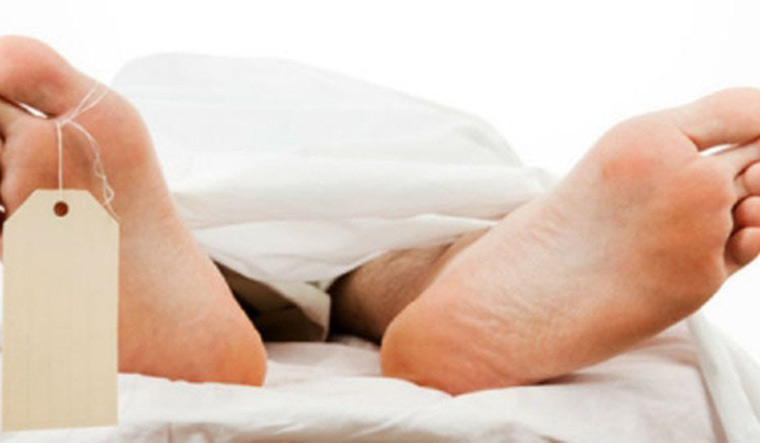A day after sending notices to Union jal shakti ministry, Uttar Pradesh and Bihar in the wake of complaints about several bodies found floating in the Ganga river in the two states, the National Human Rights Commission (NHRC), on Friday, issued an advisory to Centre and states, asking them to protect the dignity and rights of the dead.
Observing that the legal position that the right to life, fair treatment and dignity, derived from the Article 21 of the Constitution of India, extends not only to the living persons but also to their dead bodies, the commission, in the advisory, said, "Despite High Court and the Supreme Court judgements, international covenants, guidelines by WHO, NDMA, government of India regarding the maintenance of Covid protocol upholding the dignity of the dead, reports are coming in the media about lowering the dignity of the dead during COVID-19 pandemic."
The commission said it is the duty of the State to protect the rights of the deceased and crime over the dead body and asked the authorities concerned to prepare a SOP in consultation with all stakeholders so that the dignity of the dead is maintained.
The NHRC proposed wide-ranging recommendations for different stakeholders in the society, including, governments, police, administration, local bodies, hospitals, medical practitioners, prison administrations, civil society, and media for extending dignity to the dead.
Some of the recommendations:
* Enact specific legislation to protect the rights of the dead. It should be the duty of every citizen to inform, after noticing any incident of death, immediately to the nearest police station and/or to emergency ambulance services or the administrative/ legal authorities, whichever feasible
* Each state must maintain a district-wise digital dataset of death cases
* Death of a person must be simultaneously updated in all documents such as bank account, Aadhar Card, Insurance
* The Police administration should ensure that there is no undue delay in post- mortem
* The hospital administration should be explicitly prohibited from deliberately retaining any dead body on the count of pending bill payment
* The local authorities should ensure that the transportation facilities are available to transport the body of the deceased at the request of family members
* The CSOs/NGOs should come forward to take up the responsibility of performing last rites of the unclaimed and unattended bodies in dignified manner
* Set up temporary crematoriums; religious rituals that do not require touching of the dead body may be allowed such as reading from religious scripts, and sprinkling holy water
* In cases where the repatriation of the body to the family may not be possible, the state/ local administration may perform the last rites of the body, taking into account the religious/ cultural factors
* Piling up of dead bodies during the transportation or at any other place must not be allowed to happen.
*Encourage use of electric crematoriums
*Mass burial/ cremation should not be allowed to take place as it is in violation of the right to dignity of the dead
The advisory, addressed to the Union home secretary, Union health & family welfare secretary and chief secretaries/ administrators of states and Union territories has asked for the implementation of its recommendations in the advisory and the action taken report within four weeks.




